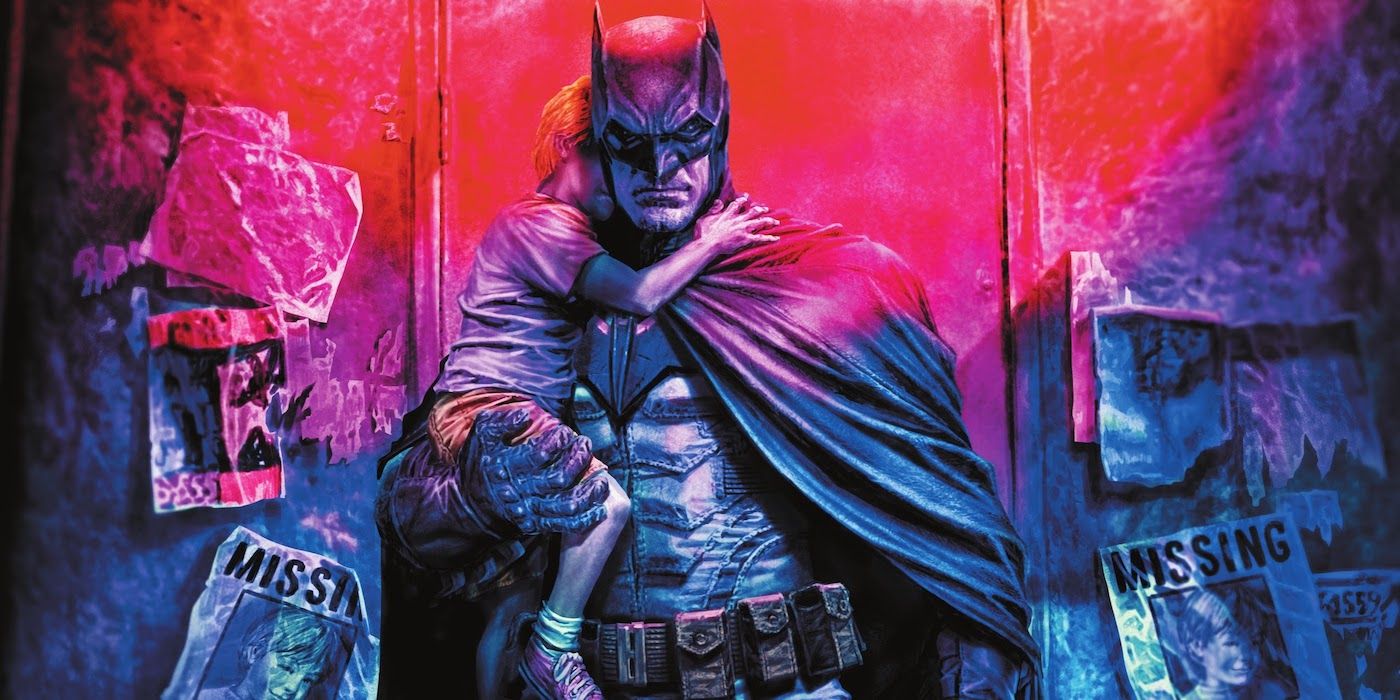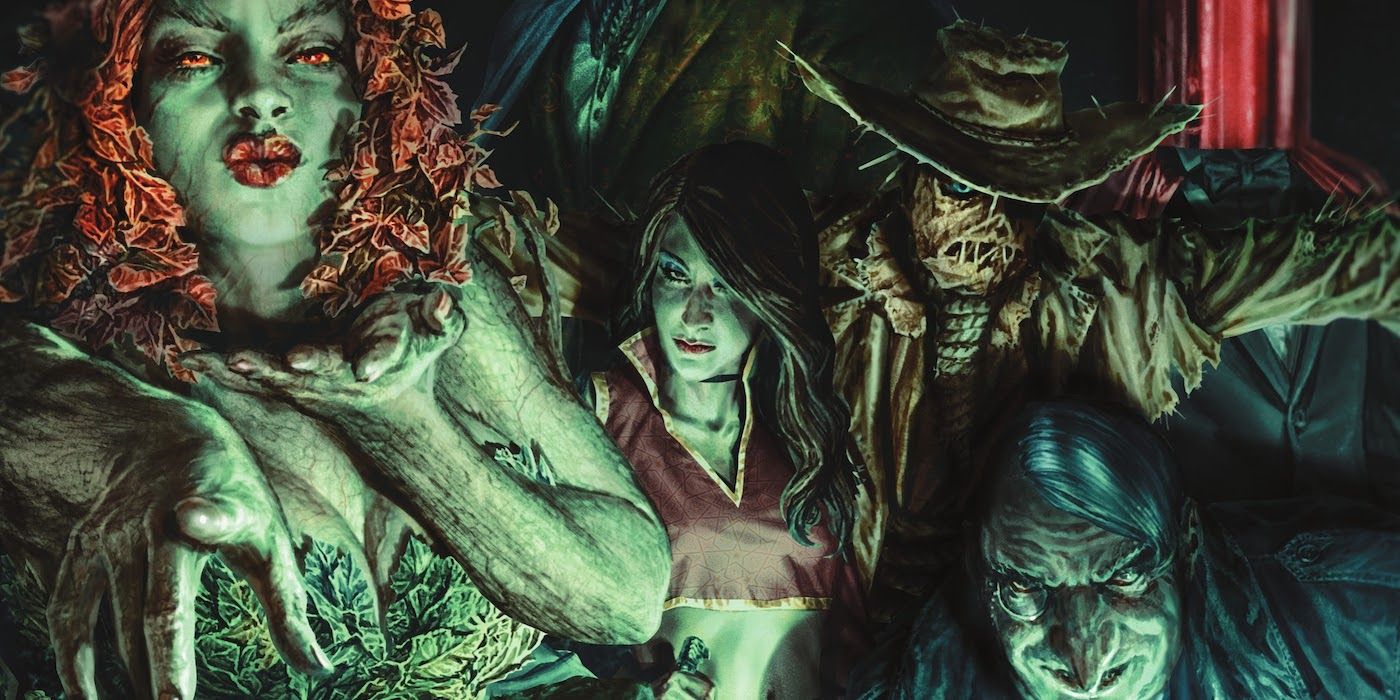The following contains spoilers for Batman: Dear Detective, on sale now from DC Comics.
In Batman: Dark Detective (by Lee Bermejo), the artist and writer collected his Detective Comics covers over the years and turned them into a prestige format graphic novella. It's a unique story, with riddles in between the covers, taunting the Bat to evoke the kind of haunting, tense mood fans saw recently in Matt Reeves' The Batman.
And make no mistake, just like Paul Dano's Riddler mentally worked Batman, this story's ciphers, while simpler, do leave a trail of breadcrumbs hinting that the Riddler is behind the sinister, eerie letter again once again. However, by the time the narrative wraps, a dark twist ensues that proves the Dark Knight will never win his crusade.
This story's quite thought-provoking as the character teases how they're a "monster, thief, murderer and psychopath." There's a degree of psycho-analysis present that gives the impression this Riddler knows Batman the best. The letter deems Bruce a scared, lonely child, stating that he belongs in Arkham Asylum with all the other inmates he put there. In fact, the author teases they'll always own Gotham, and ensure that the city will make Bruce become what he hates most.
At this point, the covers speak to Bruce's sidekicks, the torture and torment they endure, and how Jason Todd died -- joking about Bruce's breaking point and encouraging him to ignore his no-kill rule. The Riddler also questioned if Jim Gordon, the Bat-signal, or the asylum work. After all, no matter what happens, the rogues always end up back out, nodding to Joker, Penguin, Clayface, etc.
Once more, it appears the Riddler was poking fun at that existential dread within Batman and how he'll never see success, despite trying to become the embodiment of justice. However, by the time the book closes, the keyword that's left to decode revealed the identity of the author. But the thing is, it's not the Riddler -- it's from "crime" itself.
This big twist shows how Bermejo gave crime a personality and made it an immortal, never-ending foe. Upon reconciling this reveal with these interlocking images, the book reminds Bruce that despite the fight against his villains, Bruce won't ever be able to heal Gotham, or himself. It's because crime never dies. It's a futile mission -- an emotional hydra where heads keep popping back up and multiplying -- so his lifelong mission at the end of the day doesn't matter.
It's a hard pill to swallow, given all Bruce has sacrificed and what he'll continue to give up for his war on crime. Ultimately, it's a losing battle and a war that the Caped Crusader, despite small battles being won, will never come out on top of. Crime damaged him in the alley with his parents, and even outside the rogues, petty crime and that sinful mentality won't change due to humanity's selfish nature, making this quite a nihilistic read.



